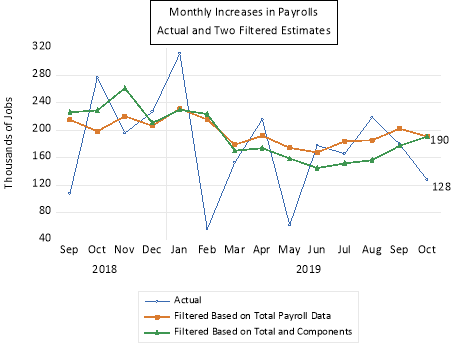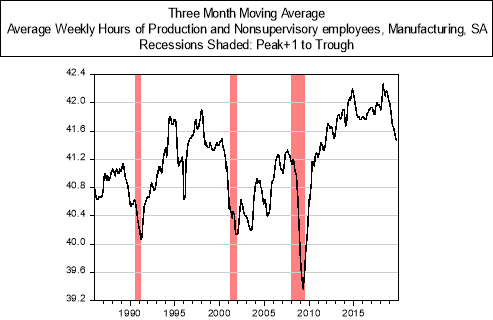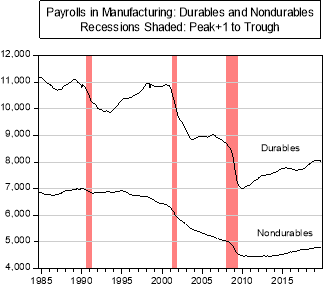What’s the News in the October Payroll Release?

What’s the News in the October Payroll Release?
Both good and worrying news in the latest jobs report, says UCLA Anderson economist Edward Leamer
Los Angeles (November 1, 2019) ― With the release of today’s October 2019 employment report, UCLA Anderson Professor Emeritus Edward Leamer offers a timely analysis of the data behind the report.
Leamer, who is also director emeritus of the UCLA Anderson Forecast, writes that the latest payroll numbers show relative stability in the economy, especially in light of the temporary impact of the GM strike. Of concern, however, is a decline in weekly hours in manufacturing, which substantially increases recession risks, the economist says.
Read on for Leamer’s analysis:
The October 2019 payroll release of 128,000 jobs is less than the (revised) 180,000 last month, and those who are worrying about the next recession might take that as something more to worry about. But it is difficult to discern the real meaning of that measured decline because the payroll data have some extreme ups and downs, with a big decline followed in the next month by a corrective big increase.
The news in these releases can be captured by two smoothed series, one based on just the overall payroll data and another one that includes the components of the payroll data like nondurable manufacturing. The actual and the smoothed versions are illustrated in the figure below. Both of the smoothed series are up this month, not down. Don’t despair. This news in the payrolls data is actually good, especially considering the temporary impact of the General Motors strike.
The right (half) story: During the first half of 2019, the rate of increase in payrolls fell from around 210,000 to around 160,000, but since the trough in June, filtered payrolls have steadily increased to 190,000 in October even with the weakness in manufacturing because of the GM strike.

Recession Alert: Declining Weekly Hours in Manufacturing
HOWEVER, the real recession news lies elsewhere in this Bureau of Labor Statistics release: Average weekly hours in manufacturing have declined steadily from 42.4 in April 2018 to 41.4 in the current release. Manufacturers facing weak demand first respond by cutting overtime hours, and only when the situation seems long-lasting do they reduce jobs. Thus, as is suggested by the two images below, declining weekly hours is a much better indicator of an oncoming recession than decline in jobs, and a decline in hours portends a decline in jobs. This decline in hours is enough to substantially increase the recession risks.
For more information, go to the Forecast report.


About UCLA Anderson Forecast
UCLA Anderson Forecast is one of the most widely watched and often-cited economic outlooks for California and the nation, and was unique in predicting both the seriousness of the early-1990s downturn in California and the strength of the state’s rebound since 1993. More recently, the Forecast was credited as the first major U.S. economic forecasting group to declare the recession of 2001. Visit UCLA Anderson Forecast at uclaforecast.com.
About UCLA Anderson School of Management
UCLA Anderson School of Management is among the leading business schools in the world, with faculty members globally renowned for their teaching excellence and research in advancing management thinking. Located in Los Angeles, gateway to the growing economies of Latin America and Asia and a city that personifies innovation in a diverse range of endeavors, UCLA Anderson’s MBA, Fully Employed MBA, Executive MBA, UCLA-NUS Executive MBA, Master of Financial Engineering, Master of Science in Business Analytics, doctoral and executive education programs embody the school’s Think in the Next ethos. Annually, some 1,800 students are trained to be global leaders seeking the business models and community solutions of tomorrow.
Contact Information UCLA Anderson Media Relations, Rebecca Trounson, (310) 825-1348, rebecca.trounson@anderson.ucla.edu